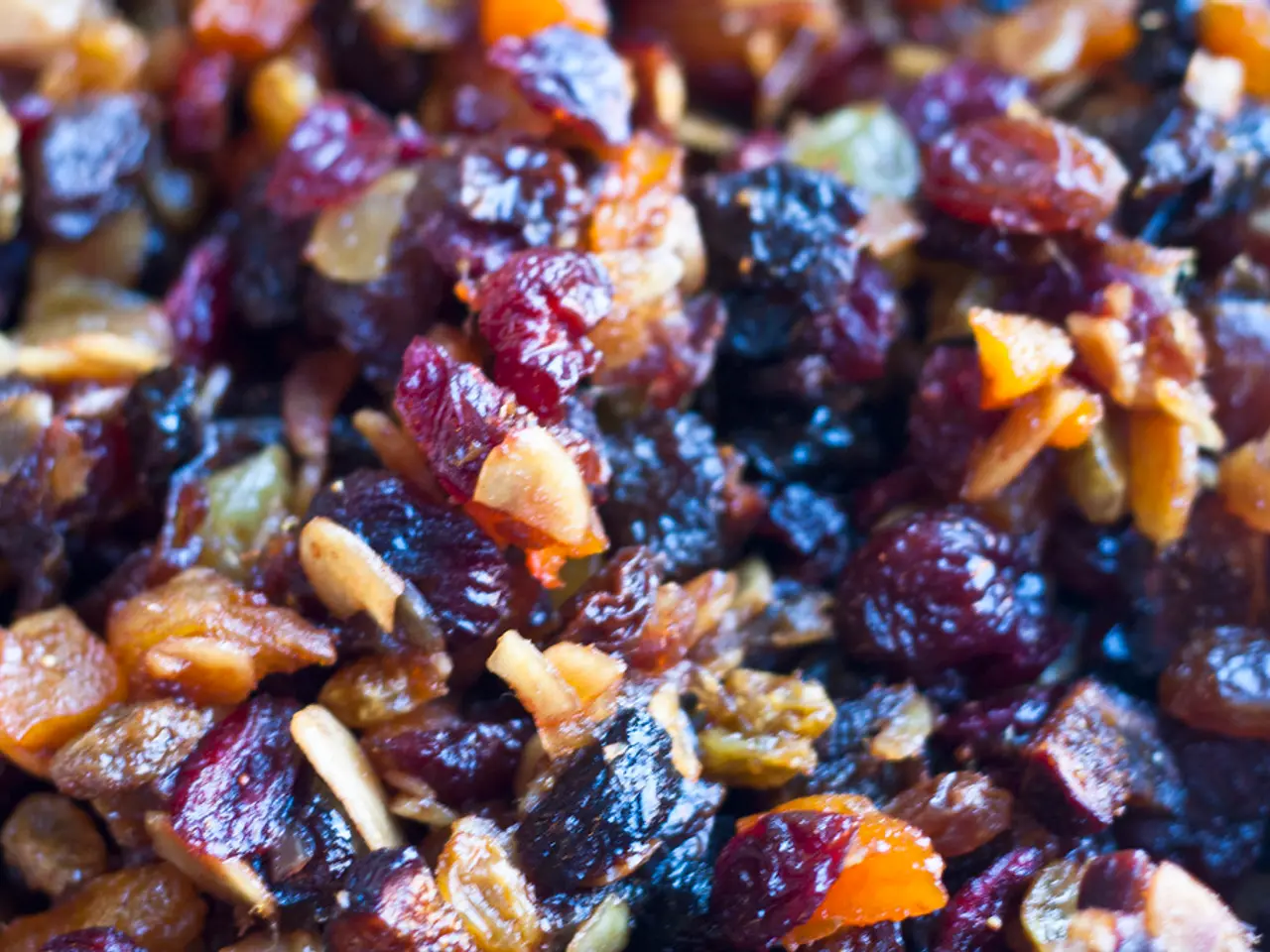Consume this food to effectively manage high blood pressure, suggested for women
Potassium, a vital nutrient found in various foods, plays a significant role in maintaining heart health. According to Professor Liffert Vogt of Amsterdam University Medical Centers, increasing dietary potassium intake can offer substantial health benefits, particularly for women [1].
Foods rich in potassium include bananas, avocados, cooked spinach, squash, potatoes (especially with skin), beans and legumes, tomatoes and tomato products, oranges and orange juice, and dried fruits like apricots and raisins [2]. These foods not only help control blood pressure but also support muscle function, nerve transmission, hydration, digestion, and heart health.
One of the key ways potassium benefits heart health is by counteracting the effects of sodium, which tends to raise blood pressure. This effect is seen in both people with and without hypertension, but the blood pressure reduction is more pronounced in those with hypertension [3]. Specifically, potassium facilitates the relaxation of blood vessel walls and helps balance fluid levels, contributing to lower blood pressure.
A recent study found that the benefits of potassium on cardiovascular events were seen regardless of salt intake [4]. However, models suggest that increasing dietary potassium while reducing sodium intake might be more effective in lowering blood pressure, particularly in women, with some indication that the potassium-to-sodium ratio impacts may vary by sex [5].
High salt consumption is associated with elevated blood pressure and a raised risk of heart attacks and strokes. A high sodium diet could also negatively impact the body's production of nitric oxide, a compound that relaxes and widens the blood vessels [6].
Potassium helps the body excrete more sodium in the urine, further aiding in blood pressure control. Green bananas, in particular, have a special added benefit for potassium intake [7].
However, it's important to note that potassium levels must be balanced since high or low potassium can cause serious health problems such as muscle weakness, arrhythmia, or cardiac arrest. Therefore, proper intake and monitoring, especially in kidney disease, are crucial [8].
In conclusion, including a diverse range of potassium-rich foods while managing sodium intake is advisable for blood pressure control in both women and men. A 19.5-year study found that people who consumed the most potassium in their diets had a 13% lower risk of cardiovascular events compared to those who got the least [9]. So, make sure to incorporate these potassium-rich foods into your diet for a healthier heart!
References:
- Professor Liffert Vogt's research on potassium and heart health
- Foods high in potassium
- Potassium and blood pressure
- Potassium and cardiovascular events
- Sex differences in potassium's blood pressure effects
- Salt, nitric oxide, and heart health
- Green bananas and potassium intake
- Potassium levels and health risks
- Long-term potassium intake and cardiovascular events
- Integrating a variety of potassium-rich foods such as bananas, avocados, spinach, squash, potatoes, beans, tomatoes, oranges, and dried fruits into your diet can offer substantial health benefits, particularly for women, as supported by Professor Liffert Vogt's research on heart health and potassium.
- Science indicates that increasing dietary potassium intake while reducing sodium consumption can contribute to better heart-and-wellness, as potassium's benefits on cardiovascular events are seen regardless of salt intake, and models suggest a potential sex difference in its blood pressure effects.
- Engaging in health-and-wellness practices that include fitness-and-exercise, proper nutrition, and the recommended intake of potassium-rich foods can help support women's health by maintaining heart health, controlling blood pressure, and lowering the risk of cardiovascular events.




